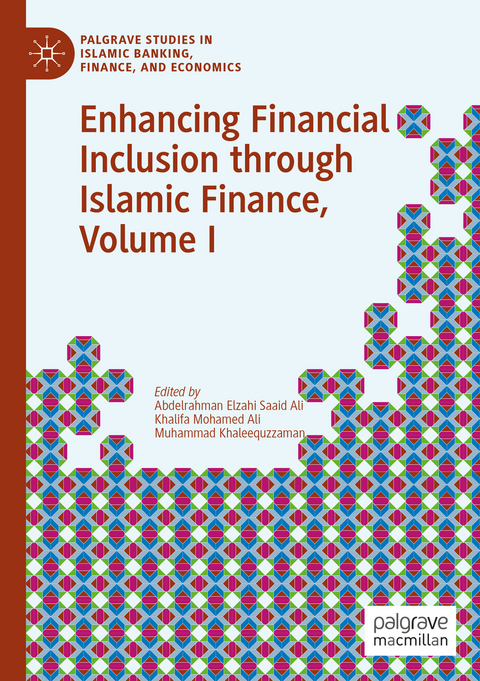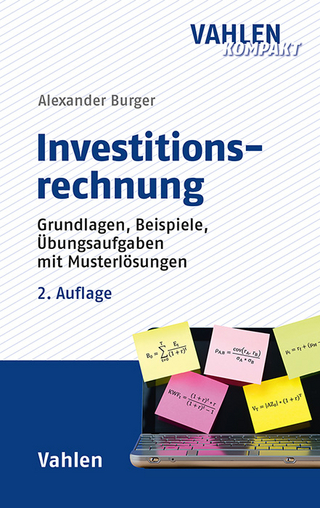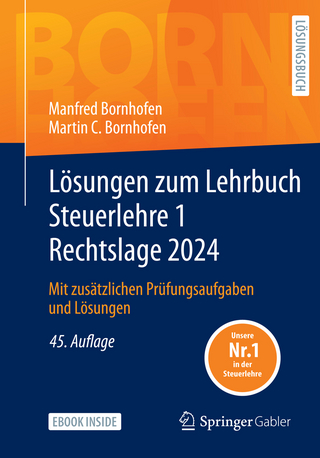
Enhancing Financial Inclusion through Islamic Finance, Volume I
Springer International Publishing (Verlag)
978-3-030-39937-5 (ISBN)
This book, the first of two volumes, highlights the concept of financial inclusion from the Islamic perspective. An important element of the Sustainable Development Goals (SDGs), financial inclusion has been given significant prominence in reform and development agendas proposed by the United Nations and G-20. The significance of Islamic financial inclusion goes beyond improved access to finance to encompass enhanced access to savings and risk mitigation products, as well as social inclusion that allows individuals and companies to engage more actively in the real economy. It represents one of the important drivers of economic growth.
Gender disparity exists within financial access and its extent varies widely across world economies. South Asia, the Middle East and North Africa have the largest gender gaps, with women in these regions being forty per cent less likely than men to have a formal account at a financial institution. Analysing how Islamic financial inclusion can empower individuals, this volume explores the contribution of Islamic microfinance in achieving SDGs and solving income and wealth inequality. Comprising a combination of empirical evidence, theory and modelling, this edited collection illustrates how to improve access to finance, making it essential reading for those researching both Islamic finance and development finance.
lt;p>
Abdelrahman Elzahi Saaid Ali is a Senior Economist at the Islamic Research and Training Institute (IRTI) of the Islamic Development Bank (IsDB). Before joining IRTI, he was Associate Professor of Economics at Sudan University of Science and Technology. Abdelrahman has written and edited a number of academic publications including Revitalization of Waqf for Socio-Economic Development (Palgrave, 2019).
Khalifa Mohamed Ali is a Senior Economist at IRTI. Before this, he was Associate Professor of Economics at the United Arab Emirates University and taught economics at Iowa State University, USA. Khalifa is the Editor of the Arabic edition of Islamic Economic Studies, one of IRTI's flagship publications, and has published extensively in the area of Islamic finance.
Muhammad Khaleequzzaman studied Economics at the University of Illinois at Urbana-Champaign, USA, and Islamic Banking and Finance at the International Islamic University Islamabad, Pakistan. Muhammad is a certified Islamic banker from the State Bank of Pakistan.
Part I. Enhancing Financial Inclusion through Islamic Finance.- 1. Introduction; Abdelrahman Elzahi Saaid Ali, Khalifa Mohamed Ali and Muhammad Khaleequzzaman.- 2. Empowering the Poor and Enhancing Financial Inclusion from a Multi-dimensional Perspective; Hazik Mohamed.- 3. Causes of Income and Wealth Inequalities: Perspectives of Economists from the Fields of Conventional and Islamic Economics; Muhammad Imran Ejaz.- 4. How Islamic Microfinance Can Contribute to Achieving the Sustainable Development Goals; Murniati Mukhlisin, Luqyan Tamanni, Toseef Azid and Rifka Mustafida.- 5. Islamic Finance and its Impact on Financial Inclusion; Wissal Msellek.- 6. A Critical Review of Takaful Companies' Contributions to Economic Developments in Fulfillment of Maqasid al-Shariah: Evidence from Malaysia; Abu Umar Faruq Ahmad and Rashedul Hasan.- Part II. Islamic Financial Inclusion: Cases and Modeling.- 7. Making Islamic Finance a Vehicle for SocialInclusion: A Case for Revisiting the Liquidity Management Practices by Islamic Banks; Muhammad Ayub.- 8. Improving Access to Financial Services: Theory and Practice around the Globe; Muhammad Azeem Qureshi and Toseef Azid.- 9. Fintech and Financial Inclusion in Pakistan: An Exploratory Study; Hassnian Ali and Rose Abdullah.- 10. Financial Inclusion for Farmers through Appropriate Financing Products: Analytic Network Process Approach; Dika Megantara and Anita Priantina.- 11. A Skill-based and Interest-free Microfinance Model of Entrepreneurship is the Most Sustainable Model; Farhat Mahmood and Adeeba Ishaq.
| Erscheinungsdatum | 03.07.2021 |
|---|---|
| Reihe/Serie | Palgrave Studies in Islamic Banking, Finance, and Economics |
| Zusatzinfo | XXII, 245 p. 48 illus. |
| Verlagsort | Cham |
| Sprache | englisch |
| Maße | 148 x 210 mm |
| Gewicht | 354 g |
| Themenwelt | Wirtschaft ► Betriebswirtschaft / Management ► Finanzierung |
| Schlagworte | Development Finance • Economic Growth • Enhancing Inclusion • Financial access • Financial Inclusion • Gender Disparity • Islamic Finance • Islamic Financial Inclusion • Islamic Fintech • Microfinance • Poverty Alleviation • risk mitigation • SDG • Social Inclusion • sustainable development • Wealth Inequality |
| ISBN-10 | 3-030-39937-0 / 3030399370 |
| ISBN-13 | 978-3-030-39937-5 / 9783030399375 |
| Zustand | Neuware |
| Haben Sie eine Frage zum Produkt? |
aus dem Bereich


